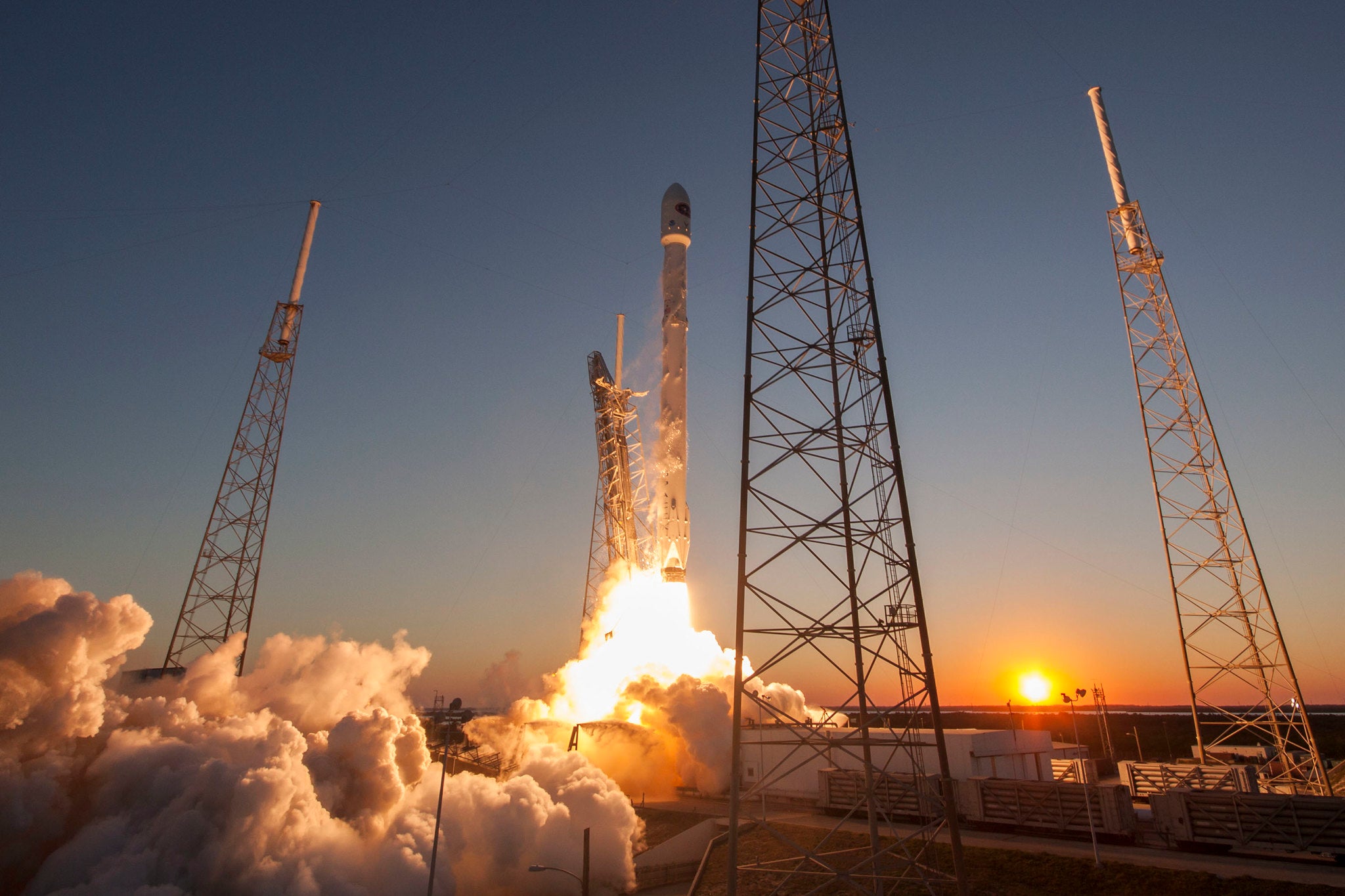Russia’s lost space customers could be boon to SpaceX and the ESA
Russia’s loss of space launch customer could be others’ gain

Your support helps us to tell the story
From reproductive rights to climate change to Big Tech, The Independent is on the ground when the story is developing. Whether it's investigating the financials of Elon Musk's pro-Trump PAC or producing our latest documentary, 'The A Word', which shines a light on the American women fighting for reproductive rights, we know how important it is to parse out the facts from the messaging.
At such a critical moment in US history, we need reporters on the ground. Your donation allows us to keep sending journalists to speak to both sides of the story.
The Independent is trusted by Americans across the entire political spectrum. And unlike many other quality news outlets, we choose not to lock Americans out of our reporting and analysis with paywalls. We believe quality journalism should be available to everyone, paid for by those who can afford it.
Your support makes all the difference.On Thursday, Dmitry Rogozin, head of the Russian space agency, Roscosmos, told Russian state media that despite the painful economic sanctions the west has laid on Russia over its invasion of Ukraine, his agency has the west right where they want them.
“The total amount of damage that we have already inflicted on them, we are already counting about $8bn,” Mr Rogozin said, citing Russia’s decisions to stop selling rocket engines to the US and its refusal to continue with scheduled satellite launches for UK-government backed satellite internet company OneWeb.
But Rocosmos’s win is likely a Pyrrhic victory, if it can even be called that. OneWeb voluntarily suspended launches with Roscosmos over the war in Ukraine, and as Laura Forczyk, a physicist, and founder of space analytics firm Astralytical, told The Independent, Russia has few space activities outside those of its customers. Combined with US sanctions president Joe Biden said were designed to “degrade the Russian space program, Russia does not look to hold a winning hand.
US space launch company SpaceX and its billionaire CEO Elon Musk, however, may be poised to win the pool. The company already aims to launch a Falcon 9 rocket a week in 2022 to set up its own Starlink network of satellites, and is currently the sole company providing crew flight services to the International Space Station through Nasa’s commercial crew program.
Now they may see an influx of customers.
US space tourism company Space Adventures has flown exclusively with Roscosmos in the past, according to Forczyk, but they need to switch over to SpaceX. And “Even though OneWeb is the competitor to Starlink, I don’t think that SpaceX would turn down a customer,” she said. “They seem to be willing to fly anybody as long as they have the capacity to do so.”
Of course, SpaceX may not have the capacity to absorb all launch customers that would choose them over Roscosmos, but SpaceX is not the only game in town either.
“Another winner might be European-built rockets. So Ariane five, Ariane six,” Mr Forczyk said. “Also there has been talk recently within ESA of creating their own capability to launch their own astronauts, so that might be boosted as well. Where there is a closing of one door, there’s opening of other opportunities.”
As Russia grows more isolated and Rocosmos’s future business prospects grow dimmer, the big question remaining is whether Russia will continue cooperating with the west on the ISS. That cooperation faces a practical and impending test, as Nasa astronaut Mark Vande Hei is scheduled to ride back to Earth aboard a Russian Soyuz spacecraft on 30 March nearly a year in space.
There are no clear signs Russia plans to leave Mr Vande Hei in space, but Mr Rogozin has threatened to stop giving American rides to the ISS before, notably in response to western sanctions in 2014 over Russia’s invasion of Ukraine’s Crimean peninsula. Unlike 2014, however, the US is no longer reliant on Russian spacecraft to fly to and from the ISS following the 2011 retirement of the space shuttle. SpaceX could now, theoretically, get Mr Vande Hei home in one of its Crew Dragon spacecraft.
It’s good to know that SpaceX crew capacity is there, according to Forczyk, but she hopes it won’t come to that.
“We can hope that cooler heads prevail and that everything stays the same because when it comes to spaceflight, everyone needs to band together,” she said. “People can easily die there if there’s no cooperation.”
Join our commenting forum
Join thought-provoking conversations, follow other Independent readers and see their replies
Comments